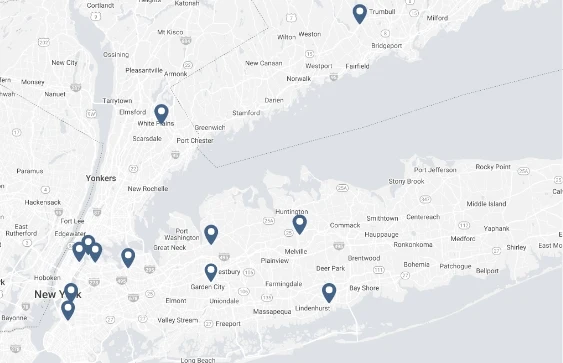Long Island Plastic Surgical Group is committed to giving back. Our highly skilled and experienced plastic surgeons participate with various charitable organizations in our local community and abroad. Our longstanding partnership with ReSurge International has allowed us to provide critical care, free surgical services, and surgical training to underserved populations. We are honored to have helped patients in developing countries access reconstructive hand surgery to restore function and improve their quality of life.
About ReSurge International
ReSurge International is a well-established charitable organization that works to provide free reconstructive surgery to patients in areas where there is little to no access to advanced medical care. Their dynamic mission also aims to increase access to reconstructive care and improve the long-term surgical resources of underserved populations by implementing surgical training for local doctors.
The Institute for Hand Surgery at Long Island Plastic Surgical Group
The Institute for Hand Surgery at Long Island Plastic Surgical Group specializes in comprehensive care to restore form and function to patients with hand and upper extremity conditions. In addition to their extensive education in plastic and reconstructive surgery, the LIPSG surgeons at the Institute for Hand Surgery have completed advanced training in hand and upper extremity procedures. This division of our practice positions us as uniquely qualified to assist ReSurge patients who are in need of reconstructive hand surgery.
How Hand Function Impacts Quality of Life in Developing Countries
In economically disadvantaged areas, a hand injury or congenital hand deformity can be crippling. According to the World Health Organization, injuries are more common in developing countries because there are fewer preventative efforts. Additionally, “the socioeconomic impact of injury-related disability is magnified in low-income countries” because of limited medical care, as well as the lack of social services for people with disabilities.1
Without restorative surgical care, patients face economic and social challenges. Many of the jobs that are available for men consist largely of manual labor. Women with hand injuries or disabilities face diminished marriage prospects, which can severely limit their social and economic standing. In rural India, where LIPSG and ReSurge have provided care, women face particularly strong pressure to marry. A clinical report on the link between Hinduism, marriage, and mental illness explains that marriage is a “sacrosanct union” as well as an essential social institution that is protected by religious and regional laws.2 Brides are prized for their ability to cook and clean, which puts disabled women at a disadvantage.
The Global Need for Experienced Hand Surgeons
There is a severe shortage of qualified plastic surgeons in the developing world, including specialized hand surgeons. Available doctors are typically general physicians who do not have the training or resources to perform complex reconstructive surgery. ReSurge addresses this problem by not only supplying the community with volunteer surgeons to perform procedures, but also offering local physicians the training they will need moving forward.
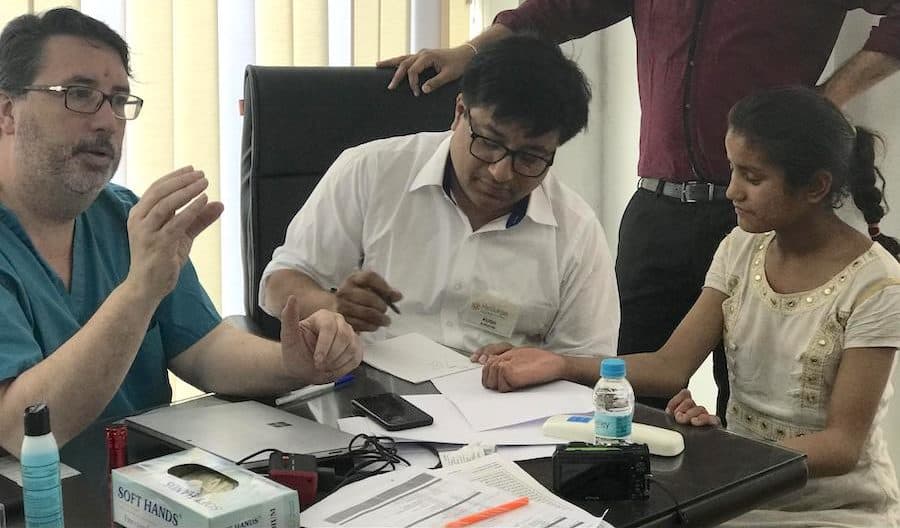
How Education Plays a Part in Access to Reconstructive Surgery
Surgeons from LIPSG have worked with ReSurge to provide reconstructive plastic surgery training to physicians in a variety of areas including Dehradun, India. Here, local surgeon Dr. Kush Aeron received critical training from LIPSG surgeon Dr. Thomas Davenport that enabled him to perform both reconstructive hand surgery and aftercare. While most physicians in India prefer the more lucrative arena of private practice, Dr. Aeron has pledged his time to serving less fortunate communities. Partnerships such as the one created between ReSurge and LIPSG allow for surgeons like Dr. Aeron to help more patients receive the care they need.
Commitment to education is a common value of ReSurge and LIPSG. The Plastic and Reconstructive Surgery Residency Program at LIPSG has trained leading plastic surgeons for over 60 years. LIPSG also provides ongoing education to medical professionals, including a recent Continuing Medical Education Accredited Course focused on hand treatment. Additionally, LIPSG has established The Dr. Vincent DiGregorio Fellowship Fund at ReSurge International to continue to provide ongoing training to surgeons in developing areas.
ReSurge Patient Stories
Pallavi’s Story
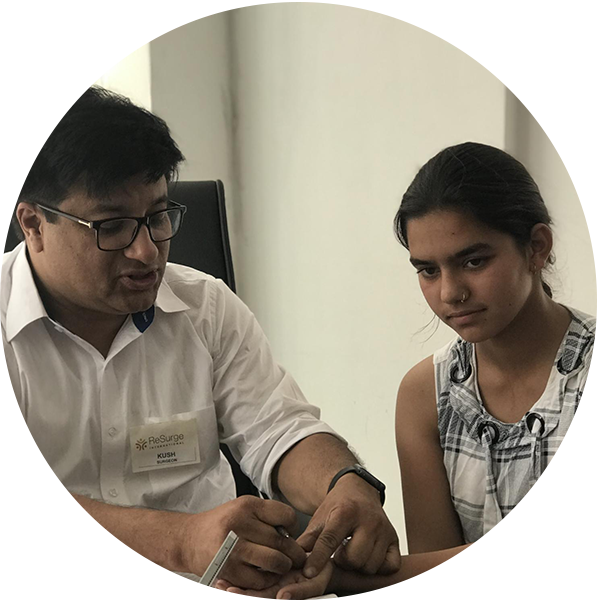
Fifteen-year-old Pallavi of Dehradun was born with congenital syndactyly, which resulted in all four of her fingers being fused together. She received reconstructive surgery from Dr. Aeron at Helping Hands, which partners with ReSurge to provide free plastic and reconstructive surgery.
Manisha’s Story
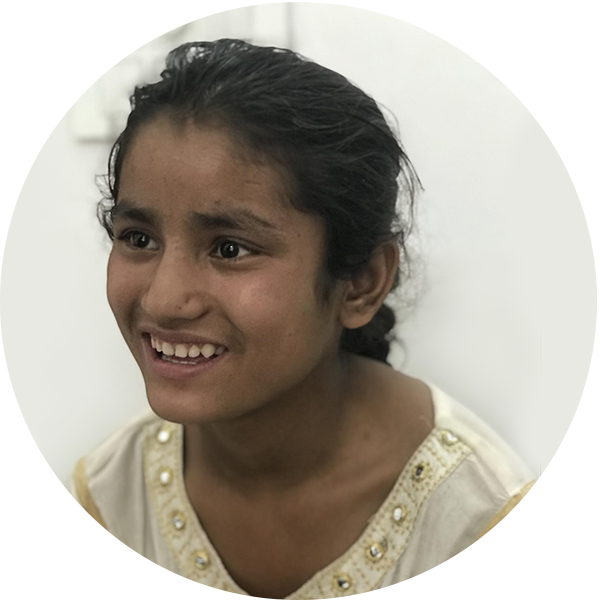
Manisha, a 15-year-old from Dehradun, suffered an electric burn that prevented her from doing many things, including attending school. Her surgery at Helping Hands was performed by Dr. Aeron and Dr. Davenport. She has kept in touch with Dr. Aeron, and reports that she is thankful to ReSurge and happy to now be attending school.
Karishma’s Story
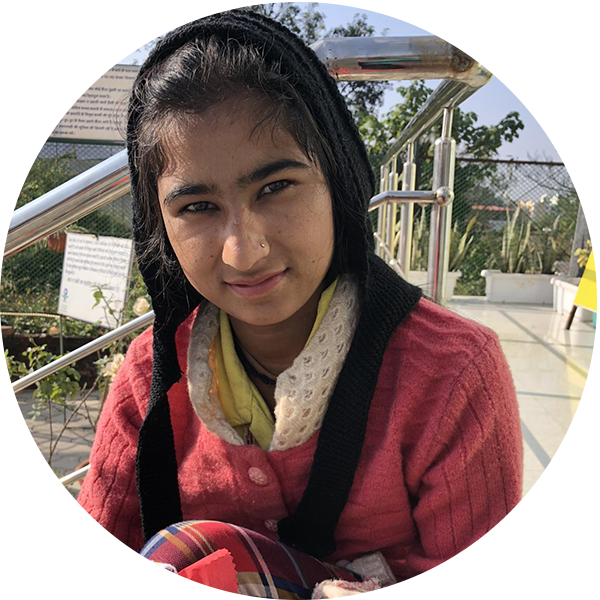
Eighteen-year-old Karishma traveled more than 10 hours by bus to see Dr. Aeron. Karishma had suffered burns from an electric warming rod used to heat water. While previous surgeries had proven unsuccessful, Dr. Aeron was able to restore function to her thumb. Post operatively, nurses and occupational therapists were able to guide Karishma in aftercare habits to improve her recovery.
Together We Can Make a Difference
LIPSG is committed to our partnership with ReSurge to help patients in underserved areas achieve restored function and regain their health and confidence. You can learn more about our partnership or donate directly to provide critical care to someone in need.
1 Bulletin of the World Health Organization 2009;87:246-246. doi: 10.2471/BLT.08.052290
2 Sharma I, Pandit B, Pathak A, Sharma R. Hinduism, marriage and mental illness. Indian J Psychiatry. 2013 Jan; 55(Suppl 2): S243–S249.
